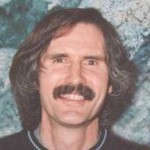
Endgame issue, water is.
Elinor Ostram's Common Pool Resource theory challenges Garrett Hardin's “Tragedy of the Commons” theory.
Nobel Lecture (2009): Beyond Markets and States: Polycentric Governance of Complex Economic Systems
Continue reading “Yoda: Elinor Ostrom & Common Pool Resource Theory Applied to Water”




